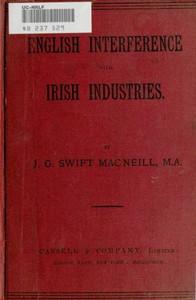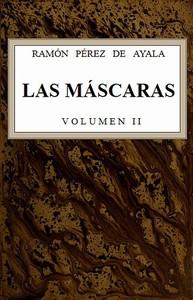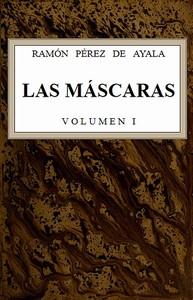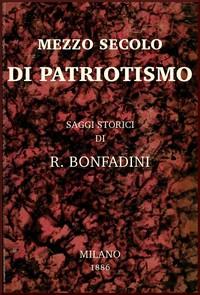Read this ebook for free! No credit card needed, absolutely nothing to pay.
Words: 89881 in 34 pages
This is an ebook sharing website. You can read the uploaded ebooks for free here. No credit cards needed, nothing to pay. If you want to own a digital copy of the ebook, or want to read offline with your favorite ebook-reader, then you can choose to buy and download the ebook.


: English Interference with Irish Industries by MacNeill J G Swift John Gordon Swift - Ireland Economic conditions; Law Ireland
ENGLISH INTERFERENCE WITH IRISH INDUSTRIES.
The interference of the English Government with Irish trade before 1782 was twofold, direct and indirect. The direct interference arose from statutes passed in the English Parliament in restraint of Irish commerce. The indirect interference arose from the influence of the English Government over the legislation of the Irish Parliament, under the provisions of the statute known as Poynings' Act.
"From the admitted dependence," says Mr. Butt, "of the Crown of Ireland upon that of England, arose the claim of the English Parliament to legislate for Ireland. Over all the colonies and dependencies of the British Crown, the British Parliament had exercised the right of legislation. Over Ireland they asserted the same right. I need not tell you how fiercely it was contested, and that it was finally abandoned in 1782. But, up to 1782, the right was asserted, and occasionally exercised."
We see, accordingly, that England claimed or exercised direct legislative control in her own Parliament over Ireland; while no Irish bills could become law or, indeed, in strictness, be introduced into the Irish Parliament without the sanction of the English Privy Council.
"Ireland," says Mr. Froude, "was regarded as a colony to be administered, not for her own benefit, but for the convenience of the mother country."
FOOTNOTES:
"Proceedings of the Home Rule Conference," 1873, p. 8.
"Report of the Discussion in the Dublin Corporation on Repeal of the Union," 1843, p. 23.
"Proceedings of the Home Rule Conference," 1873, pp. 8, 9.
For further account of the constitution and powers of the Irish Parliament, see "The Irish Parliament: What it Was, and What it Did," by J. G. Swift MacNeill, published by Cassell & Company, Limited.
"English in Ireland," vol. i., p. 178.
Persons familiar with the relative economic conditions of Great Britain and Ireland at the present time, will find it difficult to realise that at one period Ireland enjoyed natural advantages in no respect inferior to those of the sister country. This, before the development of steam-power, was undoubtedly the fact. This would be still the case were it not for the dearth of coal in Ireland. The evidence of public men of the last century, who were well acquainted with the circumstances of both countries, is on this point conclusive. "Ireland," writes Edmund Burke in 1778, "is a country in the same climate and of the same natural qualities and productions with this ." "In Ireland," writes Hely Hutchinson in 1779, "the climate, soil, growth, and productions are the same as in England." Plunket, in his speech against the Union, delivered in the Irish Parliament on the 15th of January, 1800, draws a comparison between England and Ireland, in which he describes England as "another happy little island placed beside her in the bosom of the Atlantic, of little more than double her territory and population, and possessing resources not nearly so superior to her wants." Mr. Froude's researches lead him to a similar conclusion: "Before the days of coal and steam, the unlimited water-power of Ireland gave her natural advantages in the race of manufactures, which, if she had received fair play, would have attracted thither thousands of skilled immigrants."
Free books android app tbrJar TBR JAR Read Free books online gutenberg
More posts by @FreeBooks








